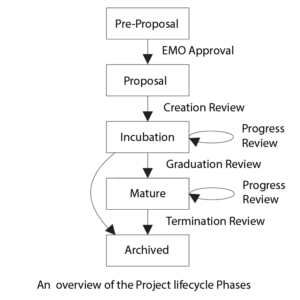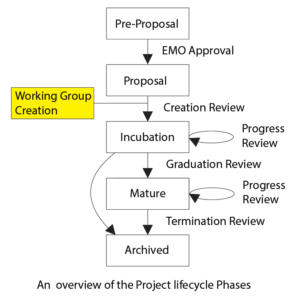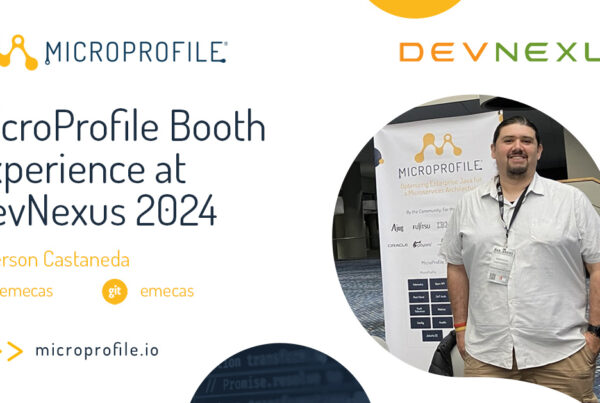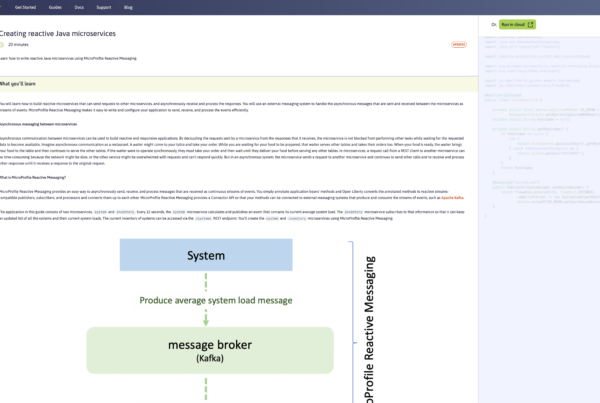Link to original copy and social post here
The Atlanta Java Users Group is a founding member of the MicroProfile Working Group (MPWG) and has a seat in the MPWG Steering Committee. Wait! What?
This has been a wild ride and to tell you why it came about here is a little context.
MicroProfile, MP, defines itself as:
MicroProfile is a baseline platform definition that optimizes Enterprise Java for a microservices architecture and delivers application portability across multiple MicroProfile runtimes. — MicroProfile FAQ
On June 27th, 2016, MicroProfile was launched in response to Oracle’s lack of progress developing the JSR 366 Platform, Enterprise Edition 8 (Java EE 8) Specification. At that time, Java EE’s slow release cadence due to the number of APIs and specs (most of which wouldn’t be used widely) did not allow for integrating support for microservices and cloud-native solutions. As stated in a Dec. 16th, 2016 blog, a group of individuals, vendors, and user groups created MicroProfile as a slimmer solution that in January 2017 decided to formally join the Eclipse Foundation by signing the agreements to leverage the Foundation’ strong vendor neutrality governance and intellectual property expertise.
MicroProfile is not Java EE or a subset of Java EE. It is an open-source specification for Enterprise Java microservices. It is open in every way:
- Open Communication
- Open Collaboration
- Open Community
- Open Source
The focus of MP, as stated in its MPWG Charter, is rapid collaborative innovation to work on microservices patterns for Enterprise Java and to integrate applications with the cloud infrastructures they run on. Also to support Jakarta EE, OpenJDK, or any relevant open standards.
The Eclipse Foundation Development Process (EFDP)
The Eclipse Foundation Development Process has a Project Lifecycle This flows as follows for all projects that wish to become a Working Group Member.
- Pre-Proposal – An individual or group of individuals declares their interest in, and rationale for, establishing a Project.
- Proposal – The proposers, in conjunction with the destination PMC and the community, collaborate in public to enhance, refine, and clarify the proposal. Mentors for the project must be identified during this Phase.
- Incubation – Establish a fully-functioning open-source project.
- Mature – The Project Team has demonstrated that they are an open-source project with an open and transparent process and actively involved and growing community, and Eclipse-quality technology.
- Archived – Projects that become inactive, either through dwindling resources or by reaching their natural conclusion, are archived.

MP and the EFDP
For several reasons related to OEM and ESF-related drivers, gridlock had slowed the MP project cadence and prevented the project from moving from the Proposal Phase to the Incubation Phase. Being in the Incubation Phase is vital for any Open Source project governed by the ESF and, specifically for MP, to retain its stated release cadence goals and move towards a vital milestone of releasing MP 4.0. One of the ESF governance prerequisites for graduating to incubation is forming a Working Group to drive the project, a charter that defines its actions, and a steering committee. An ESF project Working Group must be composed of a minimum of 5 organizations that meet certain qualification criteria.

AJUG and MP Relationship
Due to our monitoring of the project forums and a desire to assist in the forward momentum of an open-source project that mirrors our values, the AJUG board discussed and agreed that we would ask if we could be included in the organizations that made up the MicroProfile Working Group. As such, after months of involvement in the community calls (open to all that wish to attend), AJUG is now an Eclipse Foundation Contributing Member (Formally known as a Solution Member, a prerequisite for any organization that wishes to become a member of an Eclipse Foundation Specification Project Working Group) and a member of the MPWG along with IBM, Red Hat, Jelastic and Tomitribe; with a voice and vote on the Steering Committee.
What this means to AJUG Members
The MP project under the working group continues to be an open-source project with open communications:
- Public calendar access welcomes anyone to join any call discussion
- MP google forum becoming a subscriber allows participation
- Youtube recordings ensure open tracking processes in all discussions
- Github Check out the project and contribute to issues and/or documentation
- Workshop We have a Half Day workshop on December 2nd, Microservices Hands-on with MicroProfile
As a member of the AJUG, you have the ability to help steer the direction of the project via our involvement in the MPWG Steering Committee, where Summers Pittman will take point. You, as an individual, have the power to shape the future of this project. All you need to do is get involved!
Atlanta Java Users Group
The Atlanta Java Users Group (AJUG) is a nonprofit organization with a mission to promote learning, exchange of information, and discussion in our community on topics related to the Java programming language and platform. AJUG holds monthly meetings and welcomes all who wish to attend and participate. AJUG also organizes an annual software developer conference, Devnexus, which is the largest Java conference in the USA
Atlanta Java Users Group Board
Pratik Patel – President
Burk Hufnagel – Vice President
Glenn Renfro – Secretary
Vincent Mayers – Treasurer
Laura Moore
Summers Pittman
Vincent Stoessel
Roy Clarkson
Caitlin Mahoney
Bruce Petro



